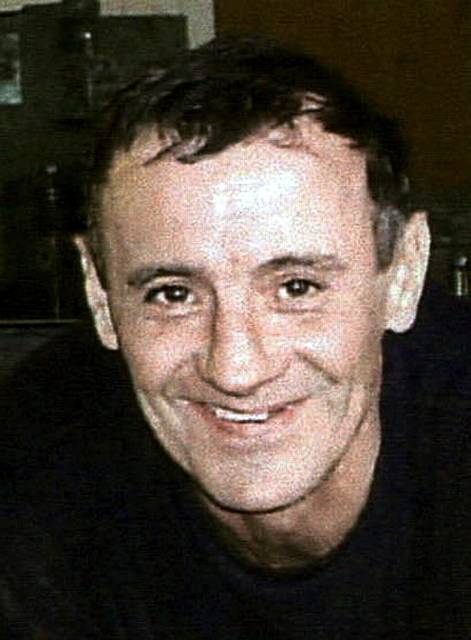Fatal mistakes bring changes and apology
Reporter: Dawn Marsden
Date published: 09 June 2010

ARNOLD SIDDALL: inquest continues
PROCEDURES guiding accident-and-emergency staff in their treatment of patients they suspect are drunk were changed following the death of Arnold Siddall, and Oldham inquest heard yesterday.
Outside the inquest, Mr Siddall’s family revealed that Pennine Acute Trust, which runs the Royal Oldham, had apologised and paid compensation in an out-of-court settlement after they pursued a claim for clinical negligence.
The 47-year-old was twice admitted to the casualty department at the Royal Oldham Hospital following an argument outside The Lock pub in Oldham Road, Failsworth, on September 22, 2007, when he was pushed to the ground, fracturing his skull and died two days later.
Paul Parry (25) of Assheton Road, Newton Heath, was cleared of manslaughter by a jury in 2008.
The inquest into Mr Siddall’s death was opened after the trial Judge, Mr Justice Openshaw, condemned the actions of the hospital and wrote to Oldham coroner Simon Nelson asking him to launch a thorough investigation.
On both occasions in casualty, Mr Siddall said he wanted to leave and staff let him go despite his being unable to stand up unaided.
When he left casualty the first time at around 3am, he stayed in the hospital grounds, appearing to fall asleep on the grass.
Security guard team leader Ian Worsencroft said that Mr Siddall was captured on CCTV between 3.30am and 9.30am staggering, lying down and throwing up in the hospital grounds but he did not approach him to check if he was okay.
Passers-by said they saw him drinking neat vodka at a bus stop in Oldham Road, Royton, close to the hospital.
Resident Wayne Davis, who lives next to the hospital, saw Mr Siddall leaning on his front door at 1pm and called an ambulance when he collapsed.
Paramedic Gari Jones arrived at 1.20pm and found Mr Siddall mumbling incoherently but responsive when he was spoken to. He said he could smell alcohol on his breath.
At the hospital, triage nurse Victoria Fairhurst took over Mr Siddall’s care and assessed his condition as being wholly attributable to alcohol.
Miss Fairhurst tried to establish how much alcohol Mr Siddall had drank but she couldn’t get a correct reading from the device used.
She said he showed no signs of obvious injury and there was no swelling, bruising or bleeding anywhere on him.
Mr Siddall was taken to the waiting room in a wheelchair and assessed as priority three, which means he should have been seen within an hour.
A short while later Mr Siddall was taken into the clinical area so staff could monitor him more closely and he fell out of his chair so triage nurse Tracy Heath called the hospital security team who helped lift him into a cubicle bed.
Mr Siddall struggled in the bed, saying he wanted to go home so security guard Ian Worsencroft escorted him outside after triage staff said he could leave if he wanted to.
Mr Siddall was taken to the edge of the hospital grounds and left on the grass where he lay on the floor.
Several passers-by stopped to ask Mr Siddall if he was okay but security staff told them to stay away from him.
At around 3pm, a police officer arrived at hospital after dealing with a separate incident and saw Mr Siddall lying on the grass.
He informed the hospital security team that he was going to arrest Mr Siddall for being drunk and disorderly and he was helped into the back of the police van where he curled up on the floor, clutching his head and appearing to fall asleep.
Everyone who dealt with Mr Siddall at the hospital reported that he never behaved in an aggressive or agitated way and at no point did he upset any other patients.
Proceeding
New guidelines for staff
Since Mr Siddall’s death there have been several procedural changes in relation to the way patients suspected of being drunk are treated,
There is now an improved communication system between paramedics and triage staff in order to get a clearer picture of the condition of each patient admitted.
More detailed observations are taken at the triage stage and patients who have been admitted with a suspected head injury are given red alert wristbands in case they are readmitted.
There are now extra triage rooms set up to help staff cope with patients during the busiest periods and security staff are now instructed to intervene if they see anyone who’s condition they are concerned about in the hospital grounds.
Most Viewed News Stories
- 1You can score free tickets to a Latics game while supporting Dr Kershaw’s Hospice
- 2Tributes paid following death of hugely respected Oldham community figure Dale Harris
- 3Primary school in Uppermill considers introducing new ‘faith-based’ entry criteria to tackle...
- 4Public inquiry announced into rail upgrade that could leave villages ‘cut off’ for months
- 5Trio arrested, drugs and weapons seized following Chadderton raid




